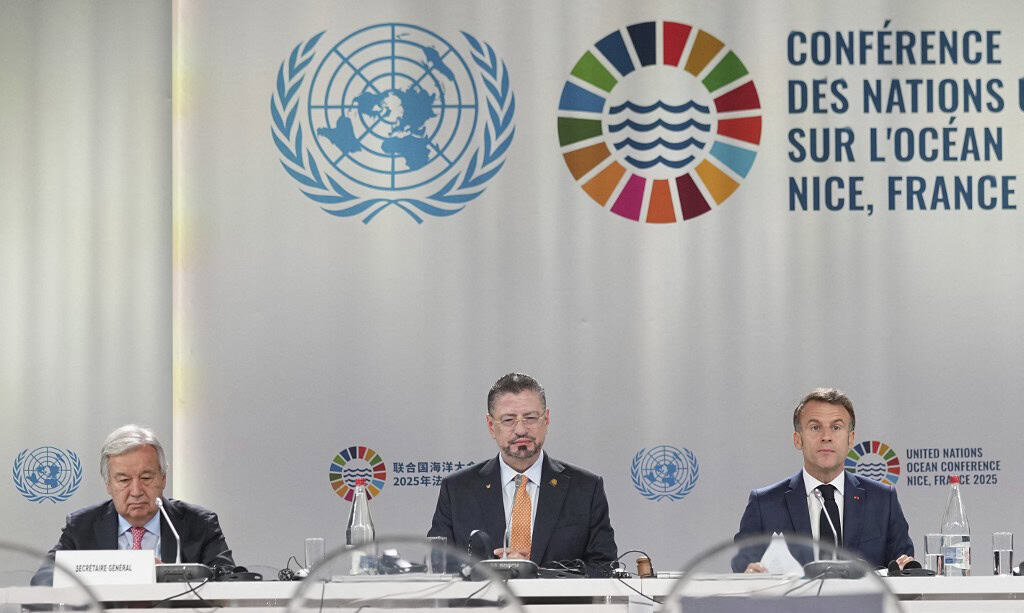Costa Rica’s high-profile role in the 2025 United Nations Ocean Conference (UNOC3) in Nice, France, has triggered fierce criticism from lawmakers and environmentalists, who accuse President Rodrigo Chaves’ administration of hypocrisy. The June event, co-hosted by Costa Rica and France, aimed to advance global ocean conservation, but critics argue the government is using the platform to mask policies that harm marine ecosystems at home.
Independent Congresswoman Kattia Cambronero spearheaded the backlash, slamming Chaves for projecting a false eco-friendly image. “The ocean would call out his deceit,” she said, citing a proposal to expand commercially exploitable marine species from 34 to 234 without scientific justification. Cambronero also condemned efforts to revive trawling, which could damage protected marine areas. “They preach conservation abroad but push extractive policies here,” she stated.
Frente Amplio Congressman Ariel Robles joined the criticism, questioning the use of public funds for the conference while environmental protections weaken domestically. He pointed to the government’s rejection of Bill 21.754, meant to bolster shark conservation, and mocked a minister’s hammerhead shark pin as a symbol of contradiction. Robles also raised concerns about negotiations over the Gandoca-Manzanillo wetlands, protected under the Ramsar Convention, alleging links to Chaves’ associate Alan Pacheco.
Environmental groups echoed these concerns. Ana López of the Costa Rican Marine Conservation Network called the administration’s UNOC3 participation “a greenwashing stunt,” pointing to a 2024 Environmental Ministry report showing a 15% decline in marine biodiversity since 2018, driven partly by lax fishing rules. Posts on X reflect public frustration, with users decrying the gap between Costa Rica’s global rhetoric and local actions.
The controversy highlights a deeper rift. Costa Rica’s international reputation as an environmental leader, reinforced by its role in the High Ambition Coalition for Nature and People, contrasts sharply with domestic policies favoring resource extraction, including open-pit mining endorsements. Critics argue these moves undermine the Sustainable Development Goals (SDGs) Chaves defended at UNOC3.
Lawmakers and activists are demanding policy changes and greater transparency. “Costa Rica can’t champion ocean protection globally while eroding it locally,” López said. As the UNOC3 spotlight dims, pressure is mounting on Chaves to align domestic actions with the country’s green image, both to protect its ecosystems and maintain its global credibility.






